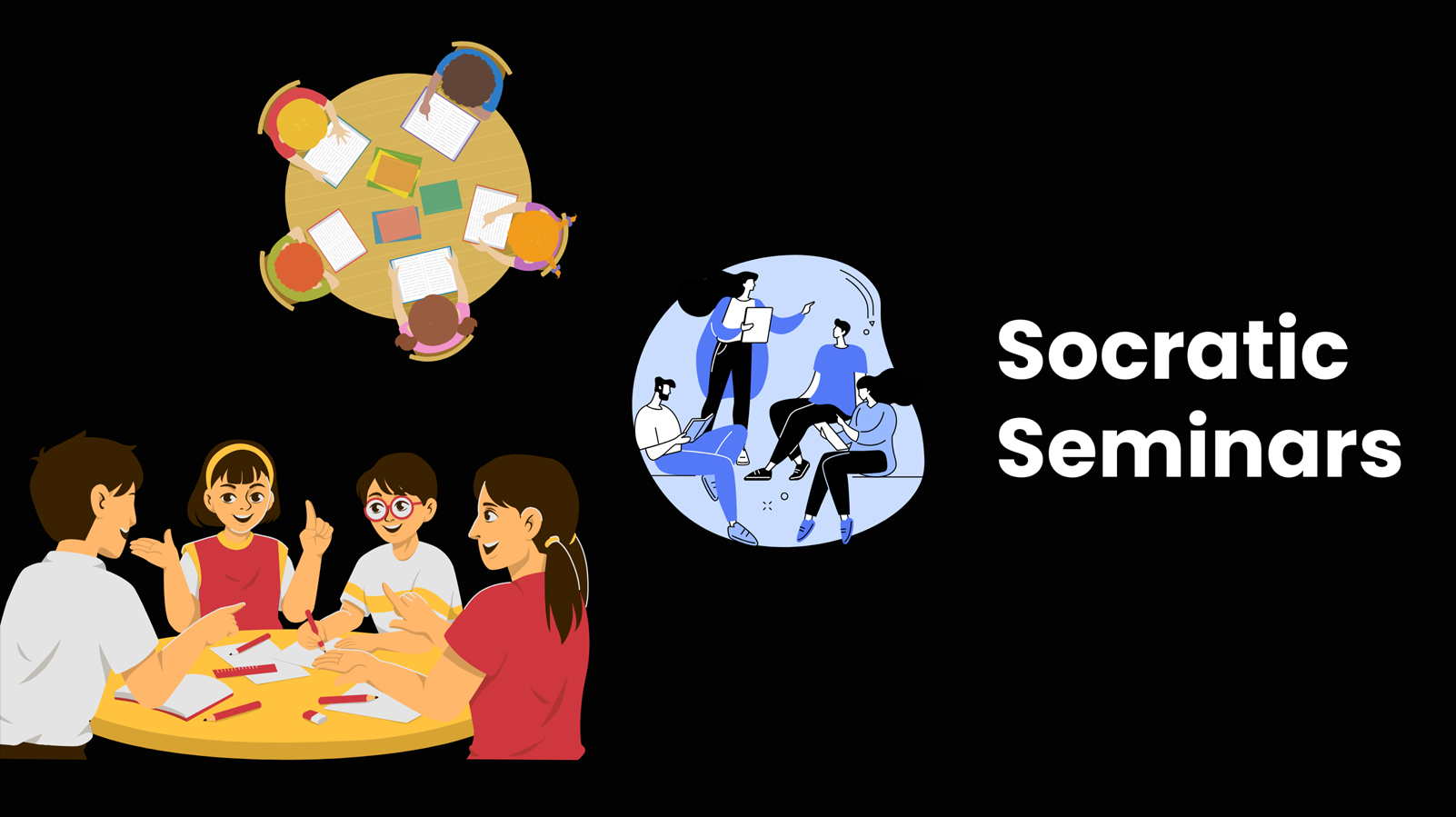Socratic seminars offer a way to engage students in thoughtful discussions, fostering critical thinking and deep learning. Rooted in the teaching methods of Socrates, these seminars focus on asking and exploring questions rather than delivering direct answers. For students, participating in Socratic seminars is an opportunity to articulate their ideas, challenge assumptions, and delve into complex issues collaboratively. This approach not only sharpens analytical skills but also builds confidence in expressing diverse perspectives.
At Stossel in the Classroom, we understand the value of facilitating meaningful conversations. That’s why we encourage educators to incorporate Socratic seminars into their lessons, especially when exploring concepts like free markets and public policy. Socratic seminars provide a structured yet flexible framework for fostering inquiry-based learning, empowering students to connect with the material on a deeper level.
Why Socratic Seminars Matter in Education
Socratic seminars encourage dialogue, not debate, focusing on understanding rather than winning an argument. According to research, this method has profound benefits for students:
- Promotes Critical Thinking: By analyzing open-ended questions, students learn to evaluate evidence, consider multiple viewpoints, and develop reasoned conclusions.
- Encourages Active Learning: Socratic discussions increase student engagement by placing learners at the center of the conversation. This active participation enhances comprehension and retention of complex ideas.
- Builds Communication Skills: Socratic seminars teach students to listen actively, articulate their thoughts clearly, and respond constructively to others. These skills are essential for success in both academic and professional settings.
Bringing Socratic Seminars into Your Classroom
Using Socratic seminars with students doesn’t require extensive training. With a bit of preparation, you can create an environment where curiosity and dialogue flourish. Here are some strategies to try:
- Prepare with Thought-Provoking Questions:
Start by selecting a central text, video, or topic for discussion. Develop open-ended questions that invite analysis and exploration, such as:
- What underlying assumptions support this argument?
- How might different perspectives influence our understanding of this issue?
- What evidence supports or contradicts this viewpoint?
Encourage students to come prepared with their own questions, too.
- Establish Ground Rules:
To create a respectful and productive discussion, set clear expectations:
- Listen actively without interrupting.
- Support statements with evidence.
- Respond thoughtfully to others’ ideas.
- Facilitate, Don’t Dominate:
As the teacher, your role is to guide the conversation rather than lead it. Use probing questions to deepen the discussion, but allow students to take ownership of their learning.
- Reflect and Evaluate:
After the seminar, ask students to reflect on the experience.
- What did they learn?
- What could be improved?
Encourage them to consider how their thinking evolved during the discussion.
Use SITC.org videos in your Socratic Seminars
Our videos, teacher’s guides, and discussion questions can help you develop prompts to facilitate engaging, student-led discussions. For example, after watching a video on free speech or economic principles, students can participate in a seminar exploring related ethical or societal questions. This not only reinforces their understanding but also connects the material to real-world issues.
A Fresh Way to Engage Students
Socratic seminars are more than just discussions—they’re a way to cultivate curiosity, empathy, and critical thinking in students. By encouraging your students to question, explore, and collaborate, you’re helping them develop skills that will serve them well beyond the classroom.
So next time you’re looking for a way to elevate your lessons, consider using a Socratic seminar. Whether you’re discussing current events or economic concepts, this method brings the material to life.



